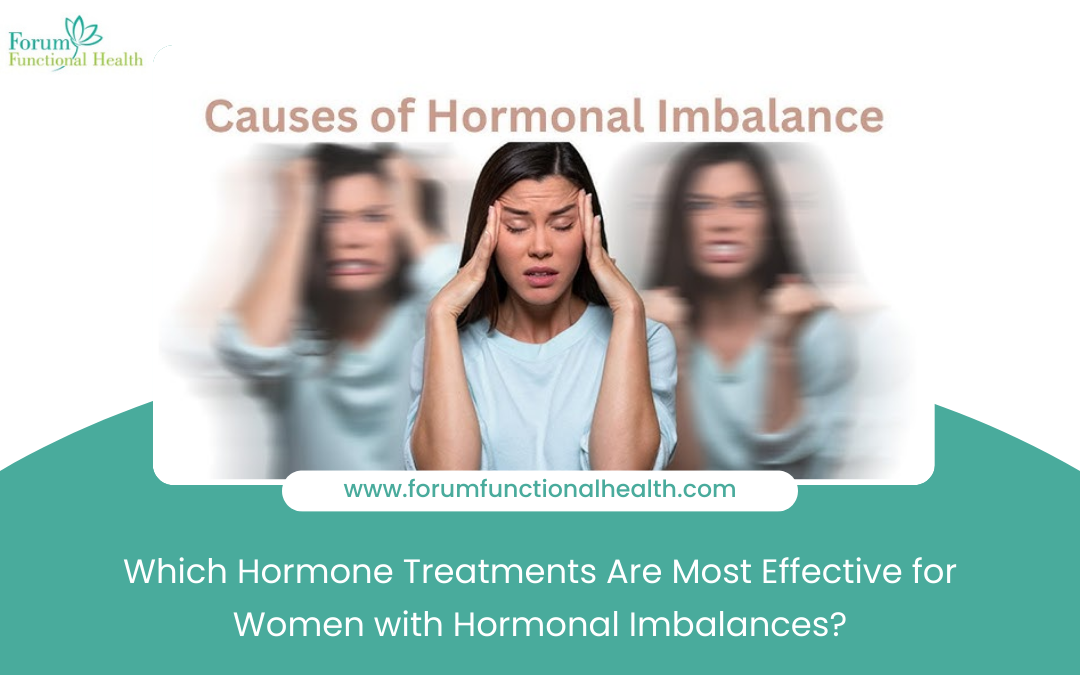Navigating the landscape of hormone treatments can be overwhelming for women dealing with hormonal imbalances. Understanding the causes, symptoms, and most effective treatment options is crucial to reclaiming a healthy, balanced life. Let’s explore the options available to help women regain stability and well-being.
Understanding Hormonal Imbalance in Women
Hormonal imbalances occur when there is too much or too little hormone in the bloodstream. Hormones are essential messengers that influence every aspect of our body, from metabolism to mood. When these hormones are disrupted, women may experience a wide range of symptoms, impacting their quality of life.
Common Causes of Hormonal Imbalance
- Stress and Lifestyle Factors: High stress levels, poor nutrition, and lack of sleep can contribute significantly to hormonal disruptions.
- Aging and Menopause: Women naturally experience changes in hormone levels as they age, especially during menopause.
- Underlying Health Conditions: Conditions like polycystic ovary syndrome (PCOS), thyroid dysfunction, and certain autoimmune diseases can lead to hormonal imbalance.
If you’re experiencing signs of hormonal imbalance, it’s crucial to consult a healthcare provider, such as the Functional Health Center in Texas, to determine the root cause and appropriate treatments.
Recognizing Hormonal Imbalance Symptoms in Females
The symptoms of hormonal imbalance in women can vary widely, often mimicking other health issues. Some of the most common hormonal imbalance symptoms include:
- Mood Swings and Irritability: Sudden emotional shifts can be frustrating and disruptive.
- Fatigue and Sleep Issues: Hormonal fluctuations can cause chronic fatigue and insomnia.
- Weight Fluctuations: Unexplained weight gain or loss is often tied to hormone levels.
- Irregular Menstrual Cycles: Hormonal shifts can lead to irregular or absent periods.
- Low Libido and Sexual Dysfunction: A decrease in estrogen or testosterone levels can impact sexual desire.
For a more detailed assessment and to explore treatment options, consider visiting Hormonal Imbalance Treatment in Texas, where you can receive expert guidance and support.
Effective Hormone Treatments for Women
Hormone therapy aims to balance hormone levels in the body, alleviating symptoms and enhancing well-being. Here are the most effective treatments:
1. Hormone Replacement Therapy (HRT):
Hormone Replacement Therapy (HRT) is a popular treatment for women, especially those experiencing menopause. This therapy involves replenishing the body with estrogen and progesterone, reducing symptoms like hot flashes, night sweats, and vaginal dryness.
- Types of HRT Hormone Replacement Therapy:
- Estrogen Therapy: Administered alone or in combination with progesterone, estrogen therapy can improve mood, bone density, and sleep quality.
- Bioidentical Hormones: Derived from natural sources, bioidentical hormones are designed to match the body’s hormones. Many women find relief with this tailored approach.
HRT is not suitable for everyone. Women with a history of breast cancer or blood clots should consult their healthcare provider to explore alternatives.
2. Birth Control Pills
Birth control pills are commonly prescribed for younger women dealing with hormonal imbalance symptoms, such as irregular menstrual cycles or severe PMS. These pills regulate hormone levels and alleviate symptoms like acne and mood swings. However, they may not be suitable for everyone and can have side effects.
3. Lifestyle Changes and Natural Remedies
For women seeking non-pharmaceutical approaches, lifestyle modifications can make a significant difference. Regular exercise, a balanced diet rich in nutrients, and stress management techniques like meditation or yoga can positively influence hormone levels.
- Nutritional Support: Certain foods can boost hormone health. For instance, cruciferous vegetables, flax seeds, and foods rich in Omega-3 fatty acids are beneficial.
- Supplements: Supplements like magnesium, vitamin D, and adaptogenic herbs can also play a role in hormone balance.
4. Thyroid Hormone Replacement
Women diagnosed with hypothyroidism often require thyroid hormone replacement therapy. This treatment involves synthetic thyroid hormones to help regulate metabolism and improve energy levels.
5. Insulin Management for PCOS
For women with Polycystic Ovary Syndrome (PCOS), treatments often focus on insulin resistance. Medications like Metformin can help manage insulin levels, which in turn can balance other hormones and reduce symptoms like excess hair growth and irregular periods.
How to Choose the Right Hormone Treatment
Selecting the appropriate hormone treatment requires a comprehensive evaluation of your symptoms, medical history, and lifestyle. It’s vital to work with a healthcare provider who specializes in hormonal health, such as the team at the Forum Functional Health Center. They can create a personalized plan tailored to your needs.
Emotional and Physical Impact of Hormonal Imbalances
Living with hormonal imbalances can be emotionally exhausting. The unpredictability of symptoms can strain relationships, affect work performance, and diminish your overall happiness. Finding effective treatments can provide relief and restore a sense of normalcy.
Remember, you’re not alone. Countless women face similar struggles, and there are caring professionals ready to guide you toward recovery. Taking control of your health is empowering, and even small changes can yield substantial results.
Conclusion
Dealing with hormonal imbalances can be daunting, but the right treatment can make a world of difference. From hormone replacement therapy to lifestyle adjustments, there are numerous options available. Consulting with a professional at the Functional Health Center in Texas can be the first step toward finding lasting relief.
If you’re ready to regain control of your health and well-being, don’t wait. Schedule a consultation and discover the treatment options best suited to your needs. Your journey to balance and vitality starts today.
Explore More: What Are the Signs of ED Dysfunction, and When Should You See a Specialist?

